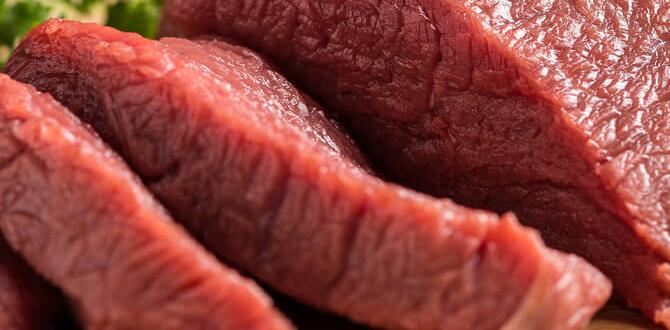Must-Have sweet potato is more than just a trending ingredient when it comes to senior low-fat dog food. For our aging canine companions, the right nutrition can make a world of difference in their quality of life. As dogs enter their golden years, their bodies undergo changes that necessitate a shift in their dietary approach. This is where specialized senior low-fat dog food, particularly those incorporating the humble yet powerful sweet potato, steps into the spotlight.
As dogs age, their metabolism slows down, and they tend to become less active. This can lead to weight gain, which can exacerbate existing health issues like arthritis, heart problems, and digestive sensitivities. Low-fat diets are crucial for managing weight and reducing strain on vital organs. However, simply reducing fat content isn’t enough. The quality of the remaining nutrients and the inclusion of beneficial ingredients are paramount. This is precisely where sweet potato shines as a key component in low-fat dog food with sweet potato for seniors.
The Nutritional Powerhouse of Sweet Potato for Senior Dogs
Sweet potatoes are a nutritional goldmine, offering a wealth of benefits perfectly suited for senior dogs on a low-fat diet. Unlike complex carbohydrates, the starches in sweet potatoes are easily digestible. This is a significant advantage for older dogs who might experience a decline in their digestive efficiency. Easier digestion means better nutrient absorption, ensuring your senior dog is getting the most out of their food.
Beyond digestibility, sweet potatoes are an excellent source of essential vitamins and minerals. They are particularly rich in Vitamin A, which is vital for maintaining healthy vision, immune function, and skin and coat health – all areas that can be particularly important for senior dogs. They also provide Vitamin C, an antioxidant that helps combat cellular damage, and B vitamins, crucial for energy metabolism. Furthermore, sweet potatoes contain minerals like manganese and potassium, which play a role in bone health and muscle function.
Addressing Senior Health Concerns with Sweet Potato-Enriched Food
One of the primary concerns for aging dogs is joint health. Arthritis and other forms of joint pain are common, making movement uncomfortable and reducing their overall mobility. While sweet potato itself doesn’t contain glucosamine or chondroitin (common joint supplements), its anti-inflammatory properties can contribute to overall well-being. Chronic inflammation can worsen joint pain, and the antioxidants present in sweet potato help to combat this.
Furthermore, the fiber content in sweet potatoes is a boon for digestive health. Constipation can be an issue for older dogs, and the soluble and insoluble fiber found in sweet potato helps to regulate bowel movements, promoting a healthy gut microbiome. A well-functioning digestive system is the cornerstone of good health for any dog, but it becomes even more critical as they age. The gentle nature of sweet potato makes it an ideal carbohydrate source for sensitive stomachs.
Why Choose Low-Fat Dog Food with Sweet Potato for Seniors?
When selecting low-fat dog food with sweet potato for seniors, you’re choosing a diet specifically formulated to meet the evolving needs of your aging pet. The low-fat aspect directly addresses the common issue of weight management in older dogs, reducing the risk of obesity-related health problems. The inclusion of sweet potato then adds a layer of superior nutritional value.
The natural sweetness of sweet potato also appeals to many dogs, making mealtime a more enjoyable experience. This can be particularly helpful for senior dogs who might be experiencing a decreased appetite. A palatable and nutrient-dense food is more likely to be consumed enthusiastically, ensuring they maintain their strength and vitality.
What to Look For in Senior Low-Fat Dog Food with Sweet Potato
When browsing the shelves or online for low-fat dog food with sweet potato for seniors, it’s essential to look beyond just the ingredient list. Check for:
High-Quality Protein: Even on a low-fat diet, senior dogs still need adequate protein to maintain muscle mass. Look for named meat sources like chicken, turkey, or fish as the primary ingredients.
Realistic Fat Content: A typical low-fat senior dog food will have 10-15% fat content on a dry matter basis. Consult your veterinarian for the ideal fat percentage for your specific dog’s needs.
Absence of Fillers: Avoid foods with excessive grains, corn, wheat, or soy as primary ingredients. These can be less digestible and offer fewer nutritional benefits for senior dogs.
Added Antioxidants and Joint Support: While sweet potato offers some antioxidant benefits, look for food that also includes added vitamins E and C, and potentially ingredients like glucosamine and chondroitin for extra joint support.
In conclusion, sweet potato is far from an optional extra in senior low-fat dog food; it’s a truly must-have ingredient. Its digestibility, vitamin and mineral profile, and anti-inflammatory properties make it an exceptional choice for supporting the health, comfort, and longevity of our beloved senior dogs. By opting for thoughtfully formulated low-fat dog food with sweet potato for seniors, you are making a proactive and loving investment in their golden years.
Meet Elyse Colburn, the devoted canine companion and storyteller behind the enchanting world of “Tales, Tails, and Adventures Unleashed.” A passionate dog enthusiast with a heart full of paw prints, Elyse Colburn shares heartwarming tales and insightful adventures, celebrating the joy, loyalty, and endless antics that make every dog a true hero. Join Elyse Colburn on this tail-wagging journey, where every post is a love letter to our four-legged friends.








